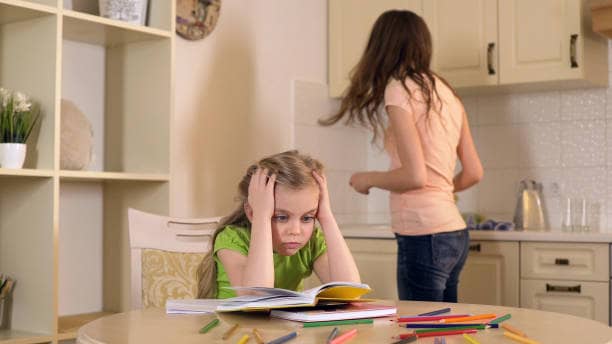Being a parent is one of the most challenging jobs in the world. You’re on call 24 hours a day and expected to resolve crises at a moment’s notice. No wonder Moms and Dads occasionally get things wrong.

Table of Contents
Here are Common Mistakes Parents Make to avoid.
#1.Being inconsistent
Many parents set limits on sugary snacks or TV time and then cave in to their children’s pester power. They may also fail to follow through on the consequences of breaking a rule if the guilty child pleads with them. When parents don’t consistently apply regulations, children are less likely to follow them.
They may even deliberately test their parents to see how much they can get away with. So it’s essential to consistently enforce established rules, even when it’s a lot easier to let kids do as they please.
#2. Bribing
Bribing is often an effective way to quickly get children to do something they don’t want to do. But it’s a parenting strategy that can backfire. It can teach children to expect rewards for things they should be routinely responsible for, such as putting their toys away or brushing their teeth .
Make a habit of praising children when they do what they’re supposed to do. This will help them to become motivated by a sense of accomplishment and self-sufficiency rather than material rewards.
#3. Sending mixed messages
It’s easy for parents to slip up and do something they’ve told their children is wrong. For example, you might warn them never to cross the street against the light and then jaywalk with them in tow when you’re in a hurry. Or tell them never to say a particular ‘bad word’ and then blurt it out when you hurt yourself.
To avoid sending mixed messages in these situations, explain to your kids that you weren’t acting on your best behaviour and knowing what you did was wrong.
#4. Using scare tactics
Many parents threaten children with scary consequences to get them to obey. For example: “If you don’t stop hitting your brother, I’ll call the police, and they’ll lock you up in jail.” Such idol threats can often stop lousy behaviour but may have negative psychological consequences.
In the scenario above, the child could learn at a young age to fear the police, or worse, fear that his parent might have him locked up. Therefore, avoid saying anything to your children to give them the impression you would allow harm to come to them.
#5. Yelling
Kids do all sorts of things that can drive parents crazy. If you find your child doing something destructive that you’ve repeatedly told them not to do, it isn’t easy to remain calm. In these sorts of situations, many parents lose it and begin yelling.
Ranting in a raised voice shows children that you are not in control of your emotions. This is not a good example to set if you want your kids to learn to handle their anger. Instead, take deep breaths, count to ten and address the situation when you’ve cooled down.
#6. Making comparisons
Parents often rebuke their children with comments such as ‘Why can’t you sit still and do your homework like your sister?’ Unfavourable comparisons between a child’s behaviour and a sibling, relative, or friend will make the child feel inferior and damage their self-esteem.
Recognize that every child is an individual with different strengths and weaknesses. Offer all your kids the help they need to catch up in areas where they may be struggling.
#7. Fighting with your spouse
It’s normal for couples to engage in the occasional heated argument, but these shouldn’t ever occur in front of the children. It can be scary for kids to see their parents fighting and expressing anger towards each other. In addition, if the argument involves parenting issues, children may feel they are to blame.
Save potentially contentious discussions until after the kids have gone to bed and try to communicate calmly and rationally.
#8. Breaking your word
Many parents casually agree to do things with their children and then don’t follow through because something else takes higher priority. Children tend to interpret simple statements of intent as solemn promises and be greatly disappointed when their expectations are dashed.
They may also lose trust in you. So if, for some legitimate reason, you can’t do what you said you would do, you owe your child an explanation and an apology.
#9. Being overprotective
Parents instinctively want to protect their children from physical harm and emotional distress. However, some go so far as stepping in to fix all of their children’s problems or not allowing their kids to take age-appropriate risks. Children need the freedom to learn their own l.com/diy-baby-clothessons, which they do by having new experiences, getting things wrong, and resolving issues for themselves.
#10. Spoiling
Many parents who try to juggle work and family responsibilities feel guilty for not spending more quality time with their children. They make up for it by giving in to their kids’ demands for expensive toys or trips to popular theme parks. Children who learn to play on their parent’s guilt to get what they want can become manipulative naggers. When children ask for something they don’t need, give them a chance to earn it by doing extra chores.




